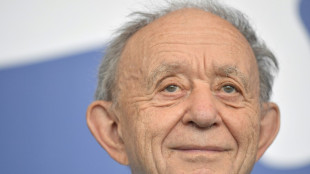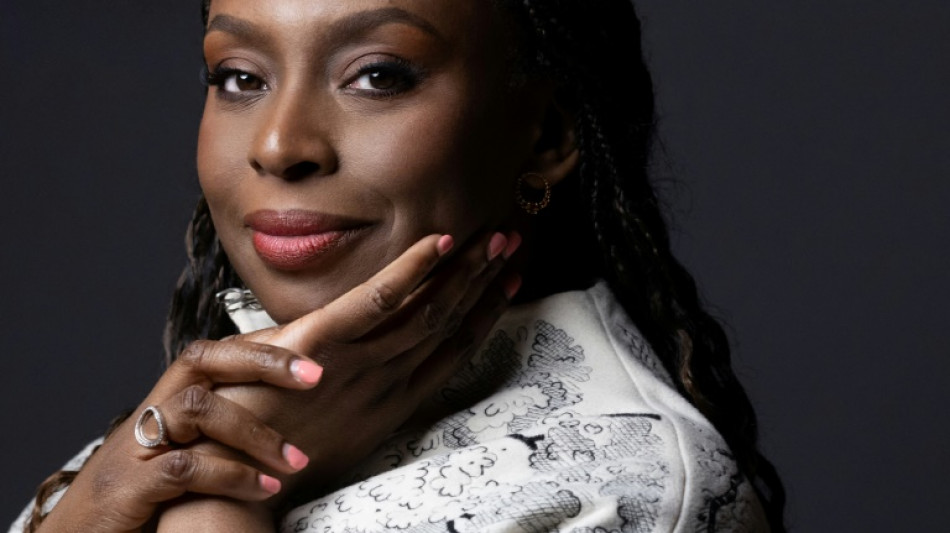
-
 Greenland entrepreneur gambles on leafy greens
Greenland entrepreneur gambles on leafy greens
-
Father of US school shooter goes on trial on murder charges

-
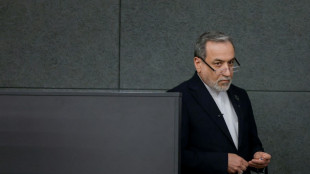 Iran, US agree on 'guiding principles' for deal at Geneva talks: Iran FM
Iran, US agree on 'guiding principles' for deal at Geneva talks: Iran FM
-
Warner Bros. gives Paramount one week to outbid Netflix

-
 Russians, Belarusians allowed to compete under own flags at 2026 Paralympics: IPC tells AFP
Russians, Belarusians allowed to compete under own flags at 2026 Paralympics: IPC tells AFP
-
Ukrainian wife battles blackouts to keep terminally ill husband alive
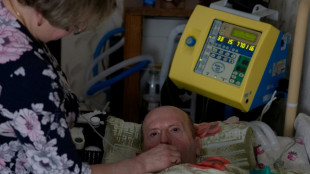
-
 Pollock handed first England start for Ireland visit
Pollock handed first England start for Ireland visit
-
Oil prices fall back as 'hopeful' Tehran responds to Trump

-
 Arteta welcomes Madueke and Saka's competition for places
Arteta welcomes Madueke and Saka's competition for places
-
France and India hail growing ties as Modi hosts Macron
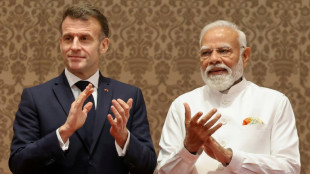
-
 Warner Bros. says reopening talks with Paramount on its buyout offer
Warner Bros. says reopening talks with Paramount on its buyout offer
-
Slalom showdown Shiffrin's last chance for Milan-Cortina medal

-
 Protesters march in Kosovo, as ex-president's war crimes trial nears end
Protesters march in Kosovo, as ex-president's war crimes trial nears end
-
No pressure on India opener Abhishek after two ducks, says coach

-
 Sakamoto eyes figure skating gold in Olympic farewell
Sakamoto eyes figure skating gold in Olympic farewell
-
Pereira 'trusts' Forest owner Marinakis despite three sackings this season

-
 AI 'arms race' risks human extinction, warns top computing expert
AI 'arms race' risks human extinction, warns top computing expert
-
Israeli bobsleigher dismisses Olympics 'diatribe' by Swiss TV commentator

-
 Supreme leader says Iran can sink US warship as Geneva talks conclude
Supreme leader says Iran can sink US warship as Geneva talks conclude
-
Australia, Ireland out of T20 World Cup as Zimbabwe qualify after washout

-
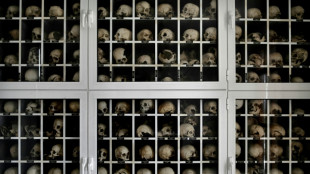 Greece experts to examine Nazi atrocity photos find
Greece experts to examine Nazi atrocity photos find
-
Los Angeles mayor calls for 2028 Olympics chairman to step down over Epstein files
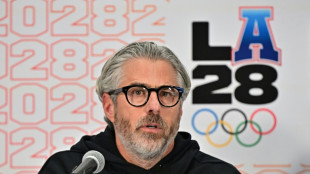
-
 Evenepoel takes UAE Tour lead with time-trial win
Evenepoel takes UAE Tour lead with time-trial win
-
Oil prices rise as Trump ramps up Iran threats

-
 EU investigates Shein over sale of childlike sex dolls
EU investigates Shein over sale of childlike sex dolls
-
Bangladesh's new PM, political heir Tarique Rahman
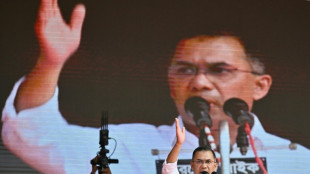
-
 Rain threatens to knock Australia out of T20 World Cup
Rain threatens to knock Australia out of T20 World Cup
-
US civil rights leader Jesse Jackson dies at 84: family

-
 Trump's new envoy arrives in South Africa with relations frayed
Trump's new envoy arrives in South Africa with relations frayed
-
Jesse Jackson: civil rights lion sought 'common ground'

-
 Iran, United States hold new talks in Geneva
Iran, United States hold new talks in Geneva
-
Tariq confident Pakistan can bounce back after India drubbing

-
 Being back in the USA 'feels amazing', says Vonn
Being back in the USA 'feels amazing', says Vonn
-
New Zealand cruise into Super Eights at T20 World Cup

-
 Moscow, Kyiv meet for US-brokered talks after fresh attacks
Moscow, Kyiv meet for US-brokered talks after fresh attacks
-
Exhilarating Italy aim to sign off with giant-killing at T20 World Cup

-
 Samra hits 110 for Canada against New Zealand at T20 World Cup
Samra hits 110 for Canada against New Zealand at T20 World Cup
-
'Made in Europe' or 'Made with Europe'? Buy European push splits bloc

-
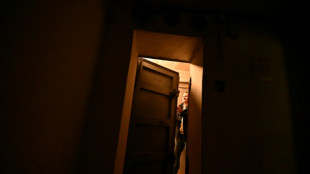 Slovakia revamps bunkers with Ukraine war uncomfortably close
Slovakia revamps bunkers with Ukraine war uncomfortably close
-
Sydney man jailed for mailing reptiles in popcorn bags

-
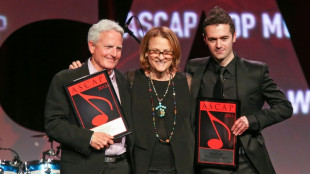 'Like a Virgin' songwriter Billy Steinberg dies at 75
'Like a Virgin' songwriter Billy Steinberg dies at 75
-
Who fills Sexton vacuum? Irish fly-half debate no closer to resolution

-
 Japan hails 'new chapter' with first Olympic pairs skating gold
Japan hails 'new chapter' with first Olympic pairs skating gold
-
Russian prosthetics workshops fill up with wounded soldiers
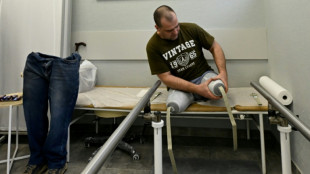
-
 'Not just props that eat': Extras seek recognition at their own 'Oscars'
'Not just props that eat': Extras seek recognition at their own 'Oscars'
-
Bangladesh PM-to-be Tarique Rahman and lawmakers sworn into parliament
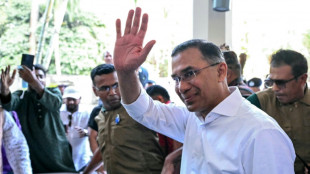
-
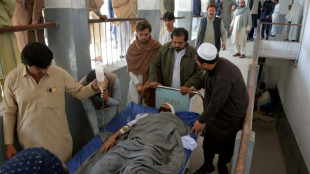 At least 14 killed in spate of attacks in northwest Pakistan
At least 14 killed in spate of attacks in northwest Pakistan
-
Peru Congress to debate impeachment of interim president

-
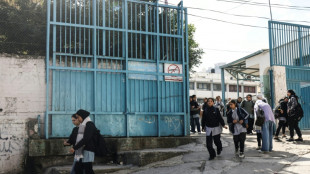 Bleak future for West Bank pupils as budget cuts bite
Bleak future for West Bank pupils as budget cuts bite
-
Oil in spotlight as Trump's Iran warning rattles sleepy markets


Are women allowed their own dreams, wonders Chimamanda Ngozi Adichie
Twelve years after her last novel, best-selling Nigerian author and feminist icon Chimamanda Ngozi Adichie is making a highly anticipated return with "Dream Count".
The story recounts the intertwined fates of four women from Nigeria who emigrate to the United States and then find out their lives do not work out as planned.
At its heart is Chiamaka, a writer who defies tradition and refuses the marriage upon which her affluent family back in Nigeria had placed so much hope.
Zikora, Chiamaka's friend, fulfils her dream of having a child. But the father does not marry her and bails out.
Chiamaka's cousin has a successful business career but then gives it all up to go back to university.
And there is Kadiatou, Chiamaka's housemaid and confidante, whose American dream is shattered when she is sexually assaulted by a guest at a luxury hotel.
"I'm interested in how much of a woman's dream is really hers, and how much is what society has told her to dream about," Adichie told AFP in Paris at the launch of the French edition of her book on March 27.
"I think that the world is still deeply oppressive to women. Women are judged more harshly for being selfish, for having ambition and for being unapologetic."
The four women initially think they know what they want from life and love, but doubts creep in when they start to fear they have missed opportunities and struggle with social pressures and racism.
Yet they continue to support each other.
"Women are socialised to think of each other as competition. And so when a woman makes the choice to really love and support another woman, it's an act of revolution. It's an act of pushing back at a patriarchal society," Adichie explained.
- Not 'a place to be pitied' -
Adichie's 2012 TED talk, "We Should All Be Feminists", propelled her into the mainstream.
It received millions of hits on YouTube and was sampled by Beyonce in the singer's hit "Flawless".
But she does not like her writing being pigeonholed.
"I don't think of myself as a 'feminist' writer," she insisted. "I think of myself as a writer. And I'm also a feminist."
"The problem with labels is that it can be very limiting," she continued. "We would then look at stories through only ideological lenses."
Instead Adichie thinks novels need to be messy and sometimes contradict opinions and beliefs.
"We're all full of contradictions," she smiled mischievously.
Another of her bugbears is the patronising Western stereotype of Africa, the "single story" of a continent plagued by poverty, conflicts, and diseases.
"There's still the tendency to look at Africa as a place to be pitied," she said.
"And I think it's very troubling because you cannot understand a place like Nigeria, for example, if you look at it only as a place to be pitied."
Nigeria is a major oil producer, has a thriving business culture, global pop stars and Nollywood -- Africa's answer to Hollywood.
- A way out of grief -
Not that everything is all rosy. Young Nigerians are leaving en masse, fleeing inflation and unemployment in search of a better future abroad.
That, in Adichie's view, is the fault of the present government, which "is not at all in any way focused on ordinary people's lives".
"I want to sit in judgment of the government, not in judgment of those who have dreams," she said.
Now 47, Adichie has seen her works translated into more than 50 languages and won a string of prestigious literary awards -– including the Orange Prize for "Half of a Yellow Sun" (2006) and the National Book Critics Circle Award for "Americanah" (2013).
But when she was pregnant with her first child, a daughter born in 2016, she was seized by crippling writer's block -- every wordsmith's nightmare.
It was the loss of her mother in 2021, only months after the death of her father, that broke the stalemate.
Out of her sorrow came "Dream Count".
"Only when I was almost done did I realise: 'My God, it's about my mother!'" she said in an interview with Britain's Guardian newspaper in February.
"I think my mother helped me," she told AFP. "I think she said: 'You know, I need to get my daughter writing again so that she doesn't go completely mad from grief.'"
She said this book is "very different from anything else I've done".
"This is the first novel that I've written as a mother. And this is the first I've written as an orphan," Adichie explained.
"It's made my writing different. Because I think when you look differently at the world, what you create becomes different."
A.Malone--AMWN

